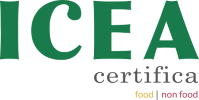INFORMATIONS
Zootechny and beekeeping.
Organic farming must ensure a close functional connection with the land and a number of animals proportional to the company’s production capacities; the livestock load cannot exceed 2 Uba/Ha. Attention to animal welfare is maximum, the density of livestock in the stable is highly limited and the spaces for walking (movement) are much wider than the minimum imposed by law. Only free housing or grazing is allowed. Organic animals are fed with high-quality and non-GMO raw materials, obtained in turn from organic farming and, as far as possible, of farm origin. The times for weaning are longer than those normally followed in intensive breeding. Veterinary interventions must give precedence to natural methods, such as: homeopathy, phytotherapy, etc. The use of conventional drugs is allowed but only in case of extreme need, doubling the drug withdrawal times. Within the same farm, the presence of organic farms and conventional farms of the same species is not allowed. The duration of the conversion period varies according to the species (e.g. 6 months for pigs and dairy cattle, 12 months for beef cattle, 10 weeks for poultry). In the case of simultaneous conversion of land and cattle breeding, this period is set at 24 months. In accordance with art. 42 of EC Reg. 834/07, following the approval of specific national regulations, particular species (poultry, silkworm, heliculture and spirulina algae) can also be certified pursuant to EC Reg. 834/07 technical standards have still been defined at Community level.
Beekeeping.
Organic beekeeping pays particular attention to the quality of the environment and defense techniques. The choice of the location of the apiaries is fundamental; land with biological methods or with low environmental impact cultivation techniques is preferred. In any case, sufficient distances from highways, urban centers, industrial areas, etc. must be guaranteed. As regards the defense against diseases, the beekeeper must first put in place adequate preventive measures, such as: choice of rustic breeds, periodic renewal of the queens and wax, constant control of the brood etc. In case of disease (varroasis, above all, is the most feared) the use of synthetic acaricides is not allowed, but only natural products registered as veterinary drugs for beekeeping, such as formic acids, oxalic acid and essential oils such as thymol. The conversion period lasts at least one year, during which the honeycomb wax must be replaced with organic wax for at least 50% or, in any case, in compliance with the very binding analytical parameters established by the control bodies.

